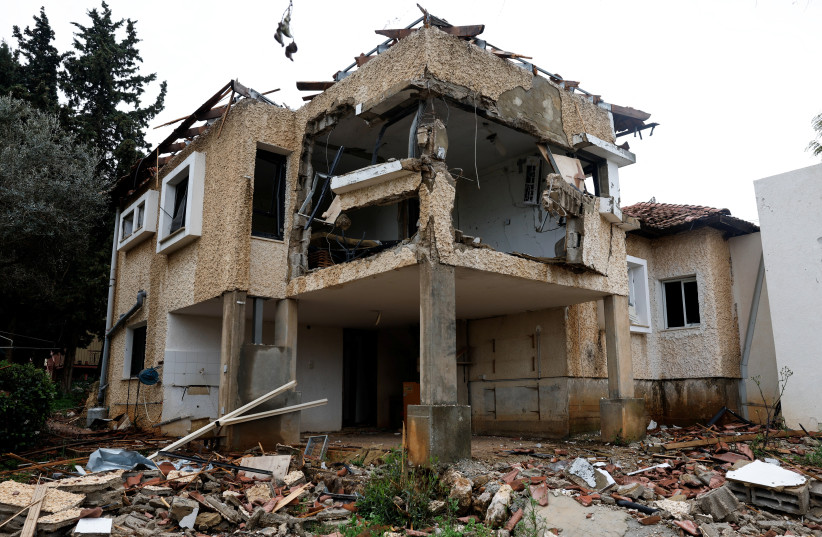Assad Awad, the military commentator from the Saudi channel Al-Hadath, appeared on the channel on Thursday. He addressed the situation in Israel’s North and analyzed the IDF's tactics in the region.
Awad addressed Israel’s conflict between Hezbollah and Iran. Speaking on the conflict, Awad suggested, "Israel was surprised by the extent of the tunnels in Gaza and the military methods [of Hamas,] and it has adopted a new strategy for regional deterrence," he said at the outset.
In the heart of civilian villages: Hezbollah's weapon production
In the initial stage, according to Awad, "Israel severely hit Iranian shipment operations to the region and destroyed many weapon shipments that were on their way from Iran.
"In the next stage, warehouses in eastern Syria were attacked and destroyed. [The warehouses] contain[ed] weapons that could have been deployed to the border with Israel within hours. In fact, it undermined Iran's supply lines to Hezbollah and Iranian militias in the region.

"All these actions may serve as a prelude to more significant activities, which may include the destruction of Hezbollah tunnels or at least disrupting the fortifications along the border with Lebanon, stretching over 79 kilometers, as well as in the Golan Heights area, which is expected to be much more challenging.”
Awad went on to clarify that "Geographically, the Golan Heights area – facing Shebaa Farms, is a tough terrain considered a Hezbollah stronghold. Israeli airstrikes will not be advantageous there, and Israel will need to show creativity in finding new operational tactics."
In his remarks, he referred to the Mountains Brigade, which will begin its operations in the coming weeks - at the height of the war, and will operate in the sectors of Mount Hermon and Mount Dov.
“Forces in the Mountains Brigade participated in the 2006 war and come with a deep familiarity with Hezbollah's tunnels,'" he said.
"In recent weeks, Hezbollah has begun building tunnels from Syria to Lebanon, aiming to transfer weapons from the arsenals, but at this stage, there is no benefit in tunnels. I estimate 70%-80% of the arsenals have been destroyed,” Awad theorized. “This is expected to delay any plan Hezbollah seeks to implement, and this may be Israel's opportunity.”
Jerusalem Post staff contributed to this report.
